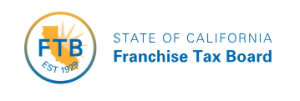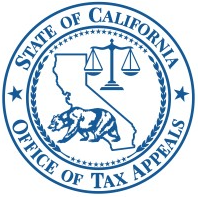SALT partners Craig Becker and Robert P. Merten III will be presenting at this year’s CalTax Annual Meeting.
Articles Posted in California
California’s Amended Wealth Tax Initiative Meets Five New Foes
Proponents of the 2026 Billionaire Tax Act amended the initiative, prompting opponents to file five new initiatives aimed at undermining various aspects of the measure. The 2026 Billionaire Tax Act would impose a one-time wealth tax on California residents and trusts with “net worth,” defined in the initiative, exceeding $1 billion, as discussed more detail in our prior article.
Billion-Dollar Question: California Initiative Targets the Ultra-Wealthy with One-Time Tax
 Proponents have filed a California ballot initiative proposing a one-time wealth tax on individuals with more than $1 billion in net worth. The “2026 Billionaire Tax Act” would impose, for tax year 2026, a 5% tax on “all forms of personal property and wealth, whether tangible or intangible” exceeding $1.1 billion, with a slightly lower rate on amounts between $1-$1.1 billion. California residents, part-year residents, and certain trusts would be subject to the tax. The initiative would also impose penalties ranging from 20-40% for understatements of the tax.
Proponents have filed a California ballot initiative proposing a one-time wealth tax on individuals with more than $1 billion in net worth. The “2026 Billionaire Tax Act” would impose, for tax year 2026, a 5% tax on “all forms of personal property and wealth, whether tangible or intangible” exceeding $1.1 billion, with a slightly lower rate on amounts between $1-$1.1 billion. California residents, part-year residents, and certain trusts would be subject to the tax. The initiative would also impose penalties ranging from 20-40% for understatements of the tax.
Sourced and Settled: California FTB Finalizes its Long-Awaited Market-Sourcing Regulation, Applicable to Tax Year 2026 and Beyond
After nearly a decade in development, the California Franchise Tax Board (FTB) has finalized its amended market-based sourcing regulation under Regulation Section 25136-2, which governs the sourcing of receipts from services and intangible property.
The regulation was approved by the Office of Administrative Law and filed with the Secretary of State on August 27, 2025. The revised rules will apply to tax years beginning on or after January 1, 2026. Among the most significant changes to the regulation are:
California Updates Tax Regulations on Technology Transfer Agreements
In a move to untangle the complexities surrounding sales and use tax in technology transfer arrangements, California’s tax regulator has laid out three major proposals.
SALT attorneys Jeff Vesely and Richard Nielsen dissect these changes—from adding clarification to introducing rebuttable presumptions—that could dial down uncertainty at the crossroads of sales/use tax and tech licensing agreements.
Welcome back to Pillsbury SALT, Annie!
Pillsbury SALT is excited to welcome back Annie H. Huang to the team!

Annie’s experience focuses on state and local tax matters, including corporate franchise and income, personal income, sales and use, and gross receipts and other local taxes.
Annie brings not only strong legal experience but also a genuine enthusiasm for building relationships and supporting clients through complex challenges.
She joins Pillsbury’s San Francisco office as a partner. Read more here.
Putting Regulations to the Test: California Taxpayers Cleared to Challenge Regulations in OTA Appeals

The California Attorney General has confirmed the Office of Tax Appeals (OTA) may decline to apply a tax regulation in a taxpayer appeal if it conflicts with the relevant statute. OTA must afford appropriate deference to the issuing agency, but its authority extends to setting aside the regulation for that appeal. OTA lacks authority to invalidate or repeal the regulation more broadly or to apply its conclusions outside the specific appeal.
CalTax Foundation Webinar
Pillsbury SALT partner Robert P. Merten III will be participating as a panelist in a CalTax Foundation webinar on August 28.

COST’s 2025 SALT Technology Workshop
Pillsbury SALT attorneys Carley Roberts, Evan Hamme, Aruna Chittiappa and Kristen Sharp will be presenting at COST’s 2025 SALT Technology Workshop on August 13-14.

 SeeSALT Blog
SeeSALT Blog


